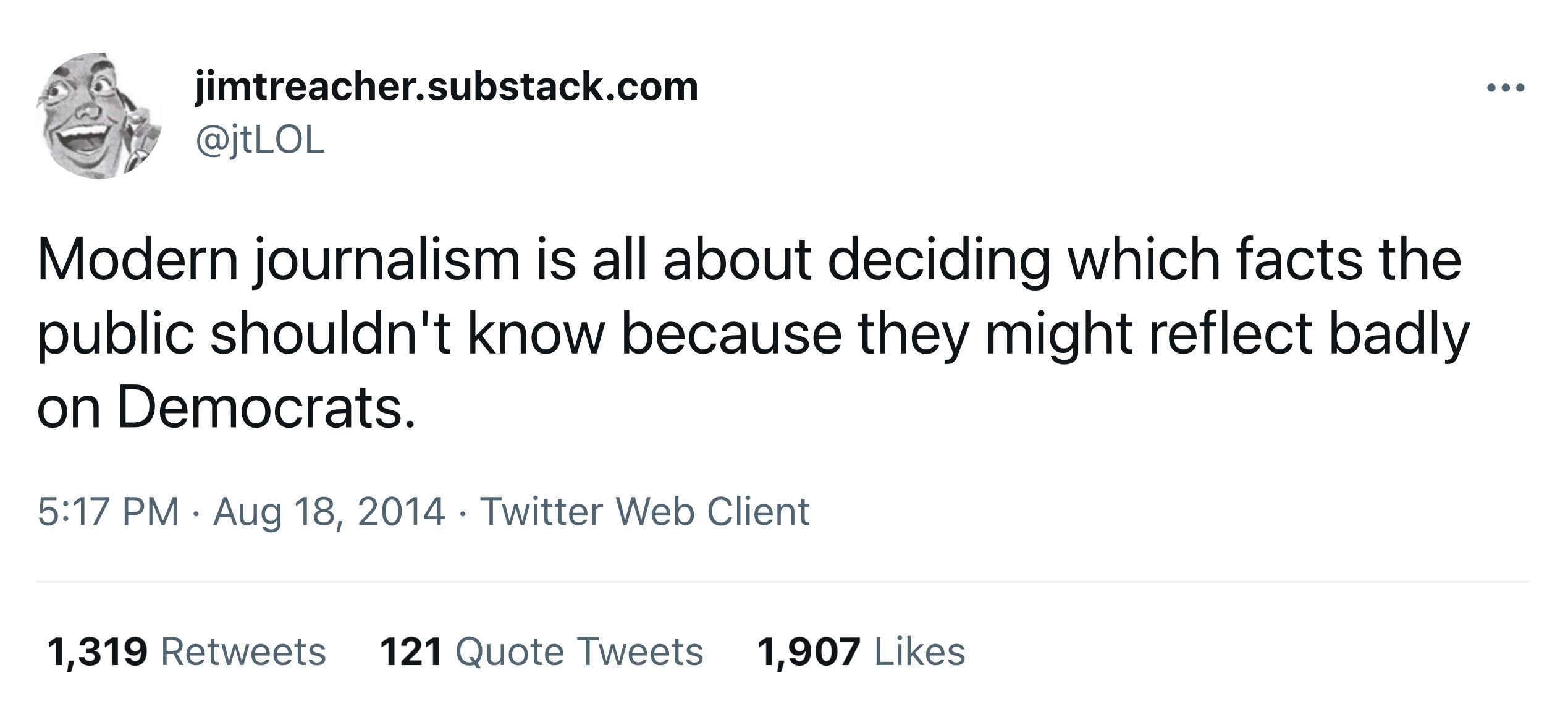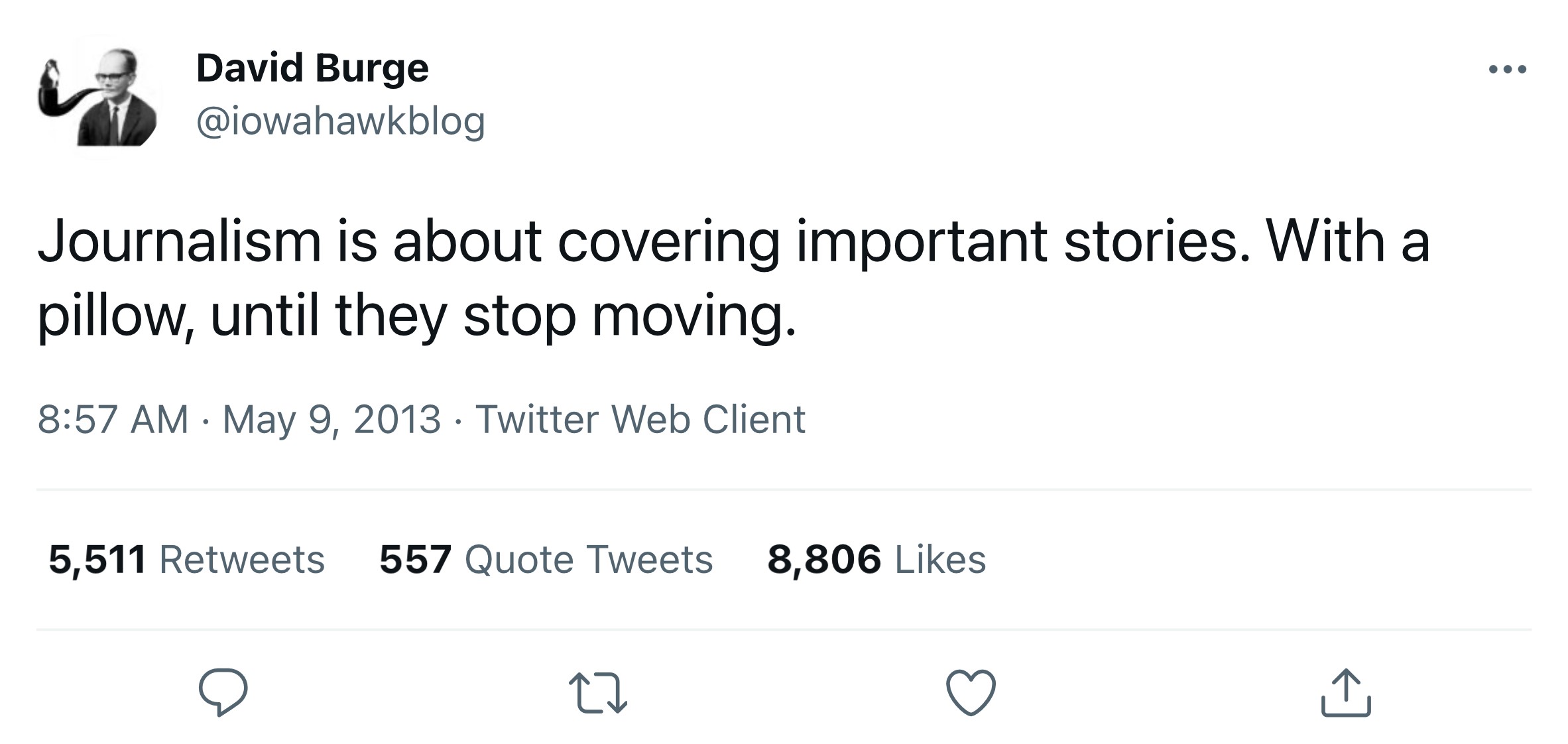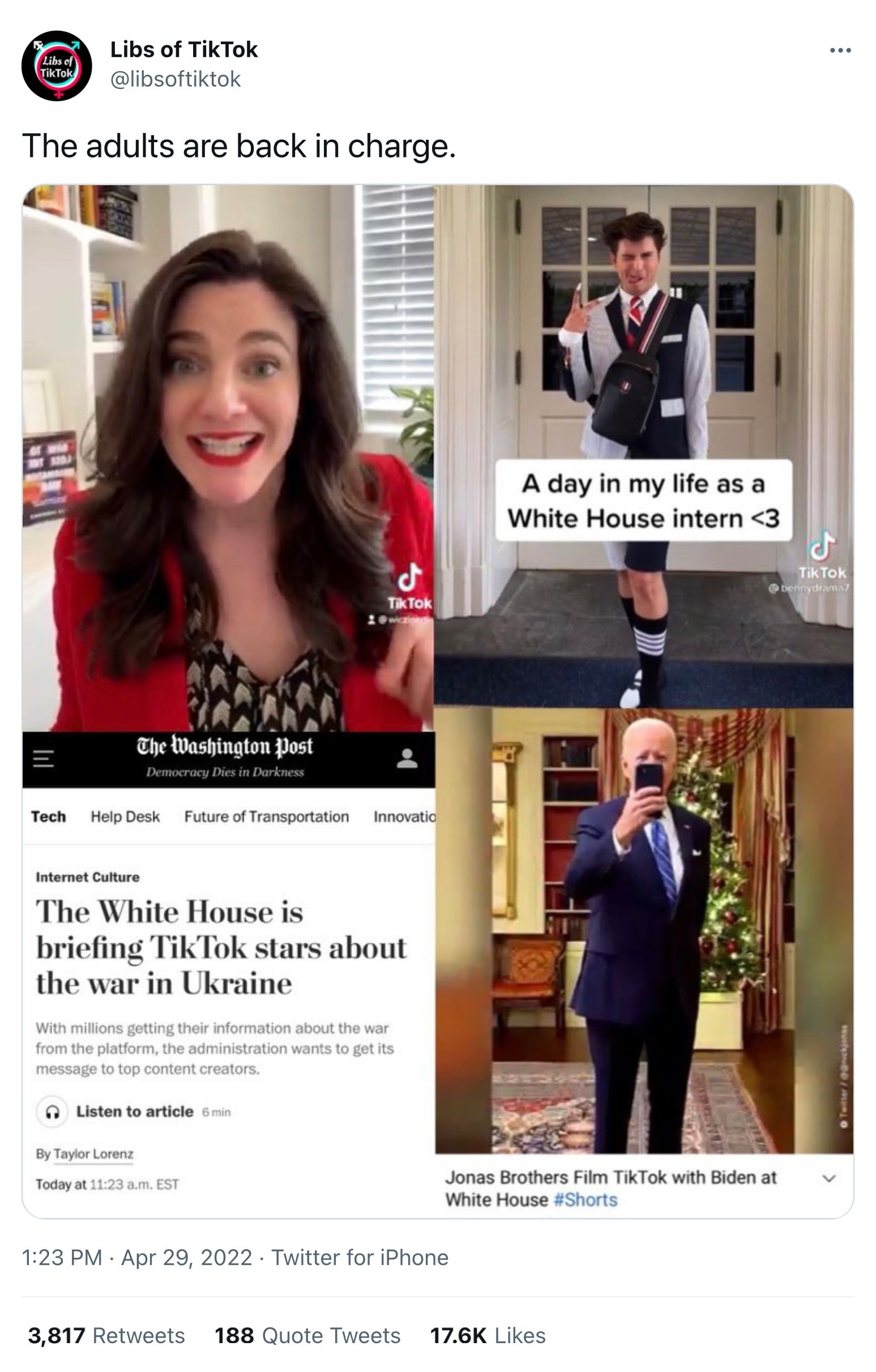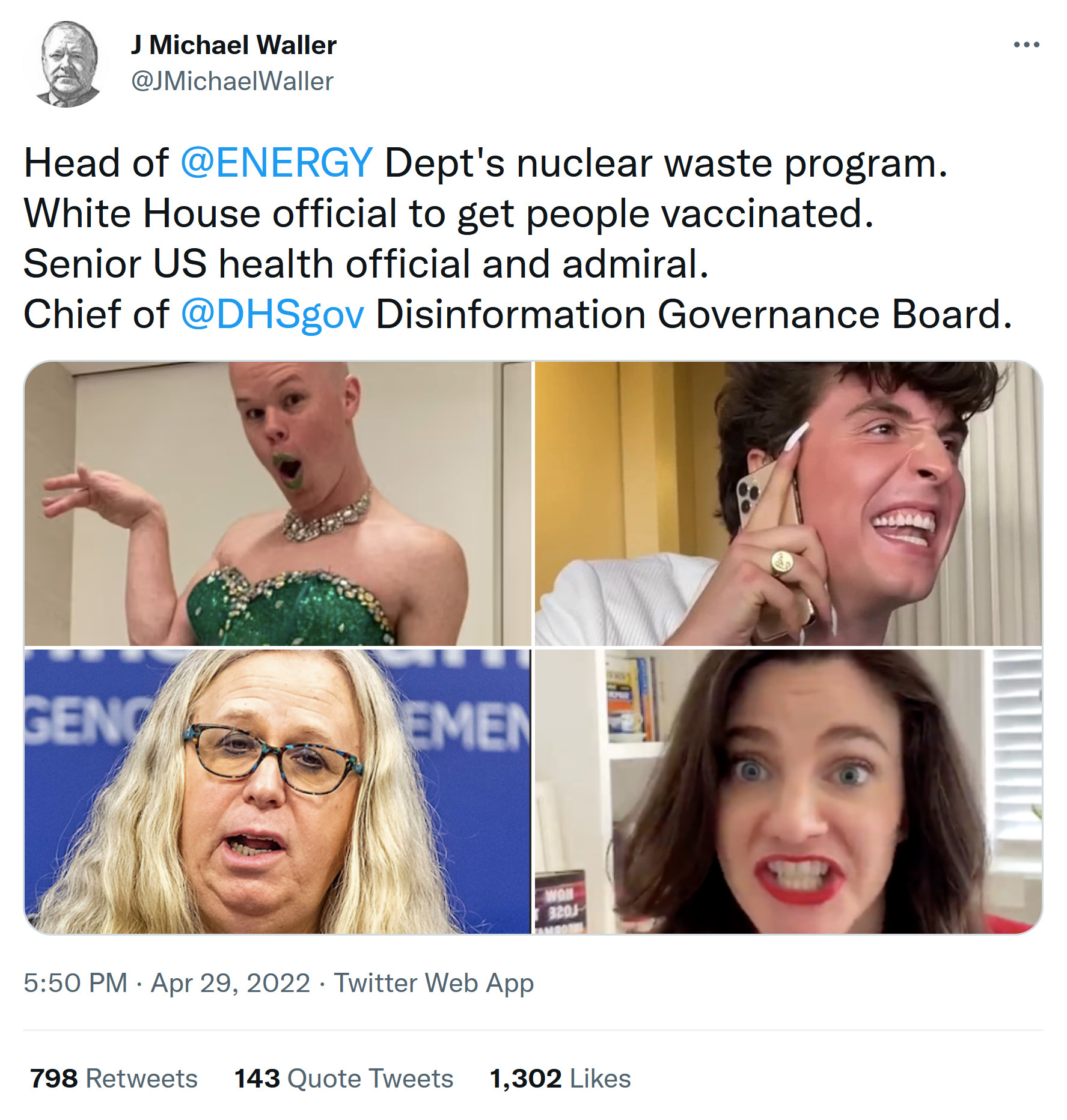SIGNS IN THE HEAVENS: Booming fireball spotted in the skies above 3 states this week, NASA says.
Archive for 2022
April 30, 2022
MISSION CREEP: ACLU helped draft article at heart of Johnny Depp v Amber Heard case for $3.5m donation, court hears. American Civil Liberties Union’s general counsel testifies that at least $500,000 came from fund connected to Elon Musk.
NOTHING TO SEE HERE, MOVE ALONG: Colorado inmate is first American to test positive for bird flu.
MARK JUDGE: When Editors Were Necessary.
What do editors do to earn their paychecks? These days, not much. In the blog and digital age, most editors sit around reading copy that’s provided for them by writers. They might change a word here or there, or bitch about a couple typos, but that’s it. For this they get paid a lot more than the writers who produce the pieces that drive the traffic that pays their salaries.
Before the digital revolution, being an editor could be sweaty work. The film Genius, based on A. Scott Berg’s book, dramatizes the legendary editor Maxwell Perkins as he helped to craft masterpieces by F. Scott Fitzgerald, Ernest Hemingway, and Thomas Wolfe. Perkins traversed the ocean of paper and ink hoisted onto his desk, spending months and years honing and perfecting. As Berg once told Vanity Fair, “Before Perkins, book editors had largely mechanical jobs: signing the book and preparing the manuscript for the printer. This one person changed the course of great American literature by working closely with authors to shape their manuscripts.”
* * * * * * *
Editors like Kate Boo began to disappear with the rise of digital media and the financial collapse of journalism. The job of editor became more simple: gather copy from the horses who were driving traffic, pop it into the slots, collect a check, go home. A lot of these editors are only marginally competent and pathetically risk-averse, making sure their Buzzfeed-chasing hacks stick to short and easy copy. Unlike predecessors mentioned above, they weren’t daring.
And when they do go big, the lack of experience, guts, and wisdom can bring about a disaster. On November 19, 2014, I clicked open the webpage to Rolling Stone. Prominently posted at the top was the story “A Rape on Campus,” about an alleged rape at the University of Virginia. I knew by the third paragraph that the story was fake. It was something that any of my editors in the 1990s would’ve caught instantly. The girl was raped and tossed through a glass table? Are the markings on her back? Did you see the markings? Did you talk to the accused?
Read the whole thing.
THIS IS SO TRUE: The Only Easy Day Was Yesterday Banner. #CommissionEarned
THEY CHOSE…POORLY: Disney Just Fired Its Corporate-Affairs Chief.
BOTTOM STORY OF THE DAY: Space Force Canceled at Netflix. The Steve Carell comedy set a record for talent pay as the actor’s deal for the series topped $1 million per episode.
Related: Netflix Stock Price Drops 35%, Posting Biggest Fall Since 2004.
More: Netflix’s Big Wake-Up Call: The Power Clash Behind the Crash.
DEAL OF THE DAY: SparkPod Shower Head. #CommissionEarned
ONE WOMAN WITH COURAGE MAKES A MAJORITY: She came out as conservative at Harvard. It went better than expected.
Of course, she did wait until she was about to graduate.
PUSHBACK WORKS: University is amending its ‘anti-racist’ ‘vision statement’ after 60+ instructors object to politicized language. “Many instructors found the proposals to have a ‘heavy dose of political and activist code language,’ and that they are being pushed by a ‘rigid left-wing agenda,’ The Boston Globe reports.”
DISPATCHES FROM THE ANNALS OF LEFTIST AUTOPHAGY AND THE MEMORY HOLE: ‘Woke’ Democrats, including AOC, want to strip former Mayor Koch’s name from 59th Street Bridge.
BACTERIA WITH MACHINE GUNS? Believe it. Michael Behe of the Discovery Institute explains that and some other absolutely amazing bacteria on HillFaith this Saturday morning.
Whether you an IDer or a Darwinian, check out the incredible characteristics of these cells. And don’t miss the medical and digital design and production nanotechnology possibilities Behe describes.
THERE’S A DEMOCRAT IN THE WHITE HOUSE, AND POLITICO IS “UNEXPECTEDLY” BORED ONCE AGAIN: The Rise and Fall of the Star White House Reporter.
Washington reporters have long considered the role of White House correspondent to be the crown jewel of American political journalism. It has launched high-profile television careers, scored countless reporters book deals and been bestowed on media veterans for years of ink-drenched work.
But during the age of Biden, a perch inside the James S. Brady Press Briefing Room has become something altogether different. It’s become a bore.
* * * * * * * *
The Obama press room launched a whole cohort of journalists into media stardom. The Trump press room launched another. The Biden press room?
“I can’t think of any [stars],” said a well-known television news executive. “I don’t really watch the briefings.”
The dulling down of the White House beat is not due to a lack of reportorial talent in the room. Nor has it meant that the work being done hasn’t been important: major stories are being broken regularly on everything from the Covid fight, to the war in Ukraine, to inflation, immigration and legislative battles over the social safety net. Rather, what is happening is the fulfillment of a central Biden promise. Running for office against Donald Trump — the most theatrical, attention-seeking, Beltway-panic-inducing president in living memory — he pledged to make Washington news boring again.
And, well, mission accomplished sir.
“Jen [Psaki] is very good at her job, which is unfortunate,” one reporter who has covered the past two administrations from the room said. “And the work is a lot less rewarding, because you’re no longer saving democracy from Sean Spicer and his Men’s Wearhouse suit. Jawing with Jen just makes you look like an asshole.”
Notice the name of that last “reporter” isn’t given in the article. But let’s review: Russia at war with Ukraine, and our being dragged in; our disastrous pullout from Afghanistan, with Americans still stranded there; an out of control border; out of control gas prices, and the return of Jimmy Carter-style stagflation; a schizophrenic Dr. Fauci; and the tapping of the appropriately named “Misinformation Czar.” Not to mention Biden frequently in full “Trunalimunumaprzure!” mode, leading to his occasional threatening of Putin, and his staffers having to walk said threats back an hour or so later.
Just think of the media as Democratic Party operatives with bylines, and the return of their Obama-era boredom makes perfect sense.
Evergreen:




LEGAL EDUCATION’S DIVERSITY PROBLEM: Measuring The Conservative Penalty And Liberal Bonus With Updated 2023 U.S. News Rankings Data. “This Article produces a strong, cumulative case for the existence of ideological discrimination in law school in general and, more specifically, in the peer rankings. The conclusion of ideological discrimination is further strengthened when the results of this research are considered in tandem with the compelling evidence of ideological discrimination in hiring law professors—a decision in which law school deans also play a significant role. Because peer rankings are the leading factor in the overall rankings, this anti-conservative bias also inflicts a conservative penalty there as well, although less severe. While the magnitude of ideological bias discovered in this study may be surprising, the notion that law school deans—consciously or otherwise—apply a conservative penalty and liberal bonus when ranking law schools is not surprising. The political ideologies of law school deans are likely comparable with those of law school faculty—which are highly disproportionately liberal.”
